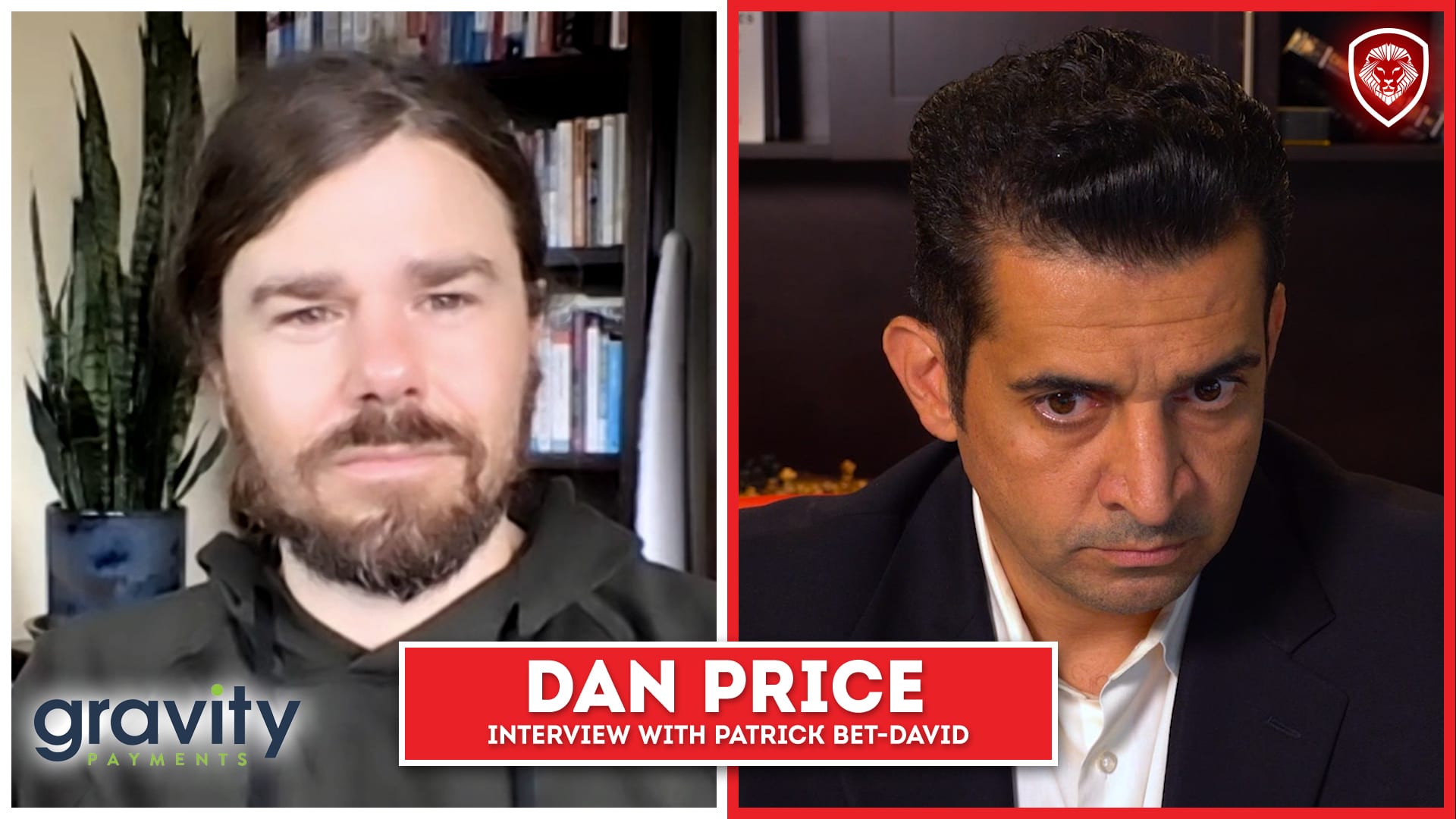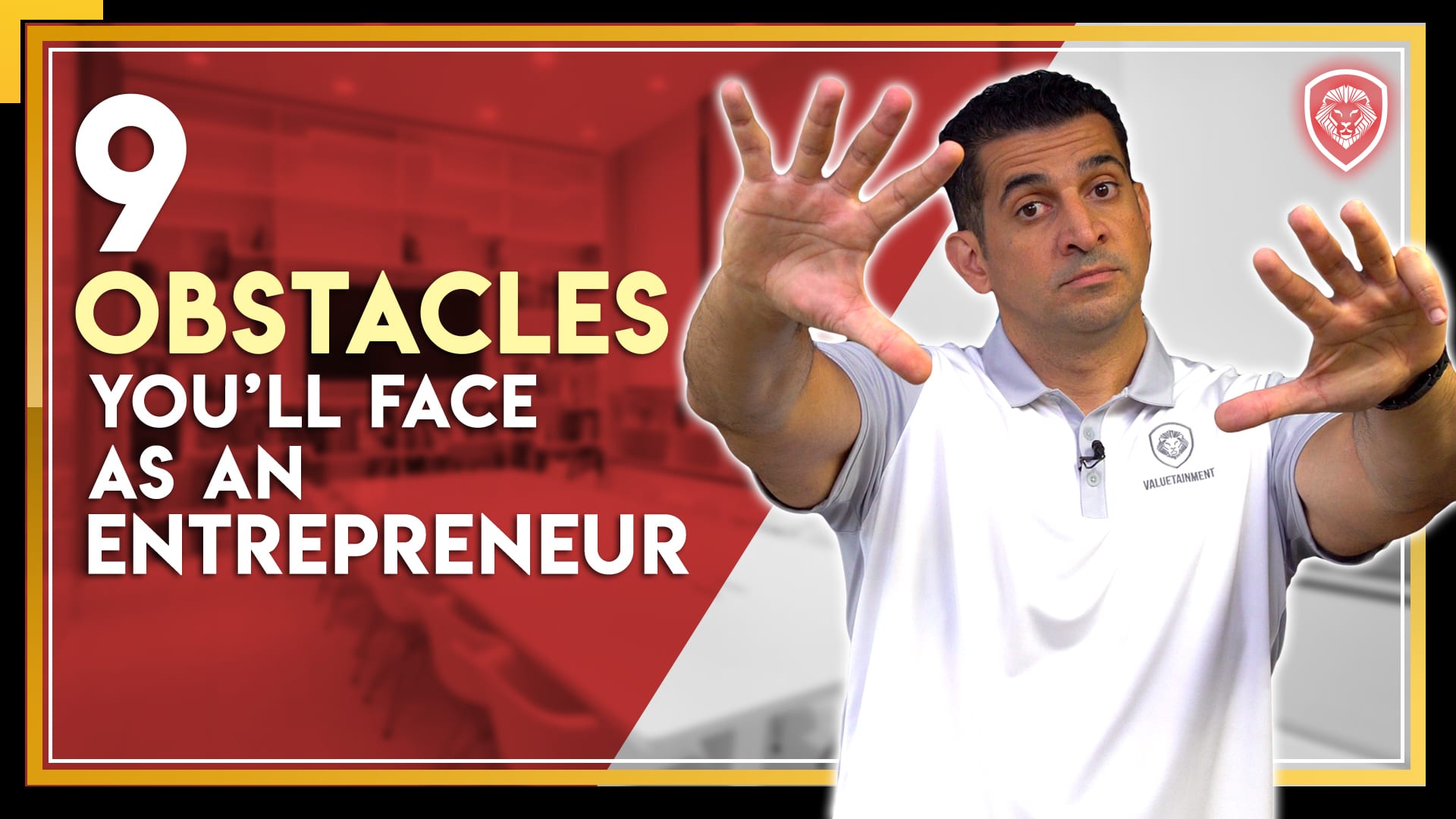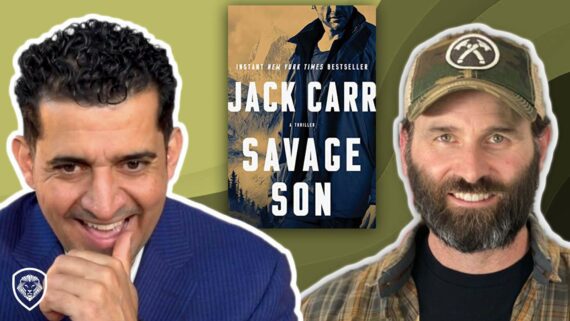Today I want to talk to you about the dumbest mistakes I made my first year as an entrepreneur.
As I was making a list of all of the dumb mistakes I made, I realized that this episode could have lasted six, seven, or even eight hours, but instead of covering all of them, I’ll just share the 12 dumbest mistakes I made my first year as an entrepreneur.
#1: I Almost Quit
The dumbest mistake I almost made my first year as an entrepreneur was that I almost quit.
I almost believed that I couldn’t do this.
I almost believed that being an entrepreneur wasn’t for me.
I almost believed it when everyone that said, “Pat, you don’t have what it takes to be an entrepreneur.”
I almost believed it and I almost gave up.
I almost quit my first year as an entrepreneur. That would have been above everything else, the dumbest mistake I would have made as an entrepreneur.
#2: Trying to Become CEO Too Early
I tried to become a CEO/President too early. Let me explain to you what I mean. I tried to organize too much, too soon.
I published the video A Phone Call to a Starving Entrepreneur last week. The message of that video is very simple. As an entrepreneur, the most important thing you need to do is sell, sell, sell. In fact, when I hear the word, “entrepreneur,” the first thing that comes to mind is sales and numbers.
Zuckerberg sells. Bezos sells. Elon Musk sells. They are salesmen first. Before you graduate to being a CEO, you first must sell.
So my biggest mistake my first year as an entrepreneur was that I tried to be too much of a business owner when I instead should have learned how to sell first and survive based on my selling abilities and making money as a salesperson instead of a CEO.
#3: Trying to Take Advice from Too Many People
If you’re not pregnant yet or haven’t been a man with a pregnant wife, when that does happen, just know that everybody wants to give you advice.
Whatever they say to you, they’re doing so because that’s what they did. The same thing happens regarding raising children.
Everyone has an opinion! And by the way, it doesn’t mean they’re wrong. And it doesn’t mean they’re right – It’ just their opinion!
The problem with this is that it’s easy to take way too much advice from too many people, which is exactly what I did my first year as an entrepreneur. When I took advice from too many people, my brain was going all over the place, and it wasn’t helpful. I also got advice from some of the wrong people.
For example, when I was 20-years-old, my first mentor was in nine different sales companies at the same time, selling nine different products. He told me that was the way to do it (you know, multiple streams of income and all). I realized that’s not the way to do it! It’s still not working for him!
Instead of getting advice from a lot of different people, find people with the life you want, and get input from them on what they did at the phase that you are currently in in your business.
#4: Not Knowing How to Ask for Advice
One of the challenging aspects of going from employee to entrepreneur is that employees don’t typically ask for advice; they’re told what to do and they go do it. Very few employees ask how they can improve; if they don’t like a job, they just quit!
So when you go from being an employee to an entrepreneur, your mind hasn’t yet shifted from being told what to do to asking for advice. And as an entrepreneur, you have to learn how to ask for advice from the right people. (But don’t forget what you just read in point #3 – make sure you’re asking for advice from the right people.)
#5: Forcing Vs. Influencing
During my first year, I forced too much on my clients, on my staff members, and on my sales force. I was way too much about forcing people to become successful. I used force instead of influence. I tried to manage everyone’s success instead of leading them.
#6: Living the Dream Too Early
After I started my business and started making money, I went out and bought a brand spanking new car – with a big car payment. I went out and bought drinks for everyone. I partied. I went to Vegas and blew $10K in a weekend – even though I didn’t have $10,000. I spent based on money that I expected to come in through future sales, and then BOOM. I lost everything – money, girls, cars – everything was gone, wiped out. My credit score was 484. Debt collectors were calling. All of this happened because I tried to live the dream too early.
At the end of the day, the number one rule of being in business is to stay in business. you have to make sure you’re staying in business to be able to have a shot at growing your business and living the dream too early can backfire on you.
#7: Listen in here for one of my biggest temptations my first year in business
I see people making this mistake all the time.
#8: Thinking I Knew it All
hen I started my business, I was a 21-year-old knucklehead. I thought I knew it all! But then I hit rock bottom – and that was the best thing that ever happened to me.
I believe that all men need to experience two big things: major heartbreak, and a very big failure early on in business.
Socrates said, All I know is that I know nothing.
If the greatest minds on their deathbed say that type of thing, then who are we to think we know everything?
Quite frankly, everything I say on Valuetainment may be inaccurate. You may come back and feel that my opinions are wrong – even though everything I teach has worked for me.
It’s important to be coachable and learn from others.
#9: Listen in here to learn what I did too hard.
#10: Acting Like a Boss Instead of an Employee
You may have heard entrepreneurs say, “I’m an entrepreneur now, I can do whatever I want.” That’s a big mistake.
If you have that attitude, you’ll fail. When a person goes from being an employee to being an entrepreneur, they’re missing one thing, and that is a boss. If you weren’t a boss at your job, you may find it difficult to be a boss as an entrepreneur because you’ve never done it before.
Many entrepreneurs fail if they don’t either have someone else to hold them accountable or learn to hold themselves accountable.
#11: Not Having a Schedule
It’s important to create a schedule and stick to it, and punish yourself if you don’t. At the beginning, I didn’t have a schedule. I just showed up whenever I wanted. As an entrepreneur, you need a schedule, and instead of working from 9:00 a.m. – 5:00 p.m., you can expect to work from 7:00 a.m. – 10:00 p.m.!
#12: Not Knowing the Value of a Business Plan
Early on I had no idea what a business plan was, much less how to write one, and at the time, you couldn’t do a Google search to find out!
Now in your first year of business, you don’t need a traditional business plan, but you do need a plan. Your plan should include actionable items such as:
- I’m going to make 250 calls today.
- I’m going to give away 50 business cards today.
- I’m going to network and connect with 50 people on social media today.
- I’m going to read an hour a day
- I’m going to study my trade an hour per day.
As you can see, these all have to do with disciplines, and developing skills, and it’s important to have a plan for those.
Those were the 12 dumbest mistakes I made my first year as an entrepreneur. There were a lot more! Comment at the bottom to let me know the biggest mistakes you’ve made in your business. And if you haven’t already subscribed to my YouTube channel, be sure to click on the button below to subscribe.







